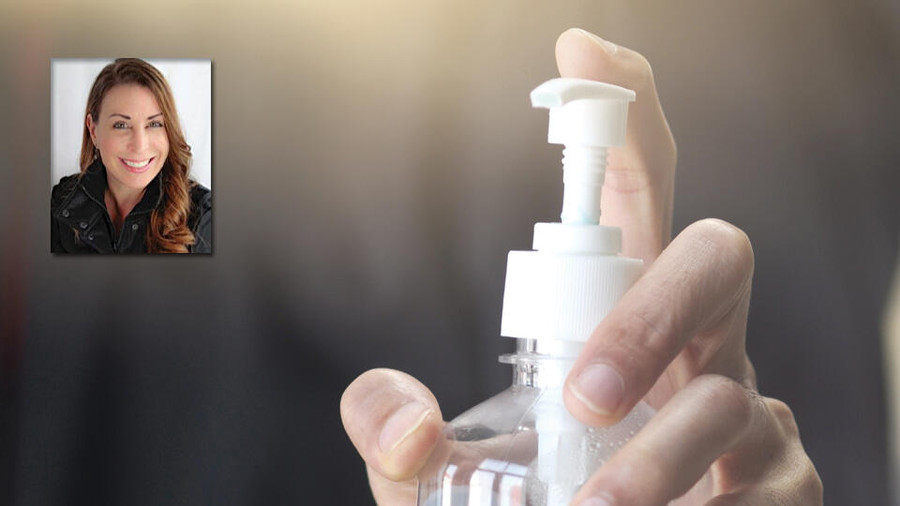The statement “kills 99.9 percent of germs” is a big lie. Adult industry friends, please stop and think with the big head and not the little one for a moment. We don’t even know what all the germs on planet earth are, much less how to kill them all with a spray, a wipe, or a light! Until recently, the only people that seemed to know about COVID-19 were Bill Gates and a few scientists.
Now is the time for the adult industry to lead the way in health and hygiene and not follow companies getting away with murder. Well, I mean getting away with murder through misleading advertising and marketing claims, but if their products were really that effective, then killing “all germs” would also kill all humans.
Now is the time for the adult industry to lead the way in health and hygiene and not follow companies getting away with murder.
Doesn’t that sound stupid? But that’s what would happen if something killed all germs. The human body contains trillions of microorganisms. We are made of microbes, aka, germs. Here is just one legitimate link from the National Institutes of Health’s Human Microbe Project (HMP), which defines normal bacterial makeup of the body: https://www.nih.gov/news-events/news-releases/nih-human- microbiome-project-defines-normal-bacterial-makeup-body.
It says: “HMP researchers now calculate that more than 10,000 microbial species occupy the human ecosystem.”
Another stand-out quote “...the vaginal microbiome undergoes a dramatic shift in bacterial species in preparation for birth, principally characterized by decreased species diversity. A newborn is a bacterial sponge as it populates its own microbiome after leaving the sterile womb; passage through the birth canal gives the baby its first dose of microbes, so it may not be surprising that the vaginal microbiome evolved to make it a healthy passage.”
Do you really think a sex toy cleaner or multi-billion dollar conglomerate, like Procter & Gamble, Unilever, Kimberly-Clark or 3M have done trillions of laboratory tests to figure out if their products kill all the microbes? Of course not; and especially not for sexual health. Just one real laboratory test to study the efficacy of a product to “kill” one germ can cost $10,000 or more.
How do I know? Because I am in the germ-killing health and hygiene business; and because I have to pay for testing. Because I buy anti-microbial and anti-bacterial in bulk to add to our products and we still legally can’t and won’t make ridiculous claims that they kill all germs.
Anti-microbial and anti-bacterial are real, but that doesn’t mean, “kills all” or “99.9% of germs.” It means anti, against, stops, slows down, helps prohibit and possibly it ends the life of a specific germ/microbe that were legitimately tested for.
You may need to put on glasses to read the very tiny print on the back of a label to see which particular germs that product can really claim to kill, if they even bothered to put that on the label.
Here’s a non-adult industry-related example so no one gets particularly called out. Today, I masked up and was able to find a spray bottle of 3M’s “TB Quat disinfectant ready-to-use cleaner” at a Target superstore. Not only does this product claim to be a cleaner, but also a disinfectant. (Side note: Cleaning and disinfecting are words people use interchangeably and they are not the same actions.)
This cleaner/disinfectant label states “Kills 99.9 percent of germs” and “Kills 99.9 percent of household bacteria.” The front label says the same lie twice, in two different ways, redundantly. The back label clarifies which particular germs it kills, and it's only a few, it’s not 99.9 percent of germs nor 99.9 percent of “household” bacteria. That would be a really big label. And what is “household bacteria?”
On this particular label, there is the nasty Mycobacterium Tuberculosis (https://www.cdc.gov/tb/topic/basics/default.htm) that causes the disease Tuberculosis that typically, but not always attacks the lungs. How is TB spread? Through the air from one person or another, like COVID-19, except the CDC specifically states TB is not spread by sharing food or drink or touching toilet seats or shaking someone’s hand.
So what are the chances of catching TB from this particular bacteria sitting on your non-porous countertop? None. Therefore testing for it and putting it on a cleaning spray label for “household bacteria” is absurd.
Now think about our industry and STDs and adult products. Would you take the chance of telling your customers that they 99.9 percent won’t get the HIV or Herpes viruses if they share a sex toy with someone who has these viruses, and they use a particular cleaning or disinfecting product or method? No, you wouldn’t.
Thanks to COVID-19 there is a new health and hygiene revolution happening right now, and for some, it is a matter of life and death. That’s why you should care about not perpetuating false health claims to make a buck — because people trust us with the most intimate parts of their lives and because we think HOLEistically.
Deborah Semer is the CEO, founder and inventor of Joyboxx.








